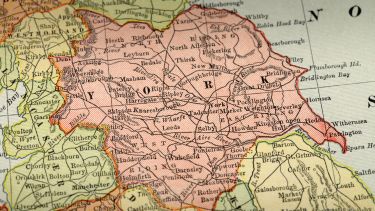- New study from University of Sheffield highlights how the pandemic continues to widen the gap between the rich and the poor
- How quickly people and businesses will recover from impacts of Covid-19 needs to be addressed at a local level, say experts
- Areas with higher levels of deprivation before the pandemic are more likely to struggle once final social restrictions have lifted
- Of the neighbourhoods in the top ten for household risk, one-third are in Blackpool
How quickly your household or business will recover from Covid-19 when restrictions are lifted, may be down to where you live and what you do, according to experts at the University of Sheffield.
Researchers from the Department of Economics assessed household and business recovery risk at a neighbourhood level, showing significant inequalities even within Local Authorities (LAs) for some areas of the UK.
The study found that areas characterised by higher deprivation had fared worse during the pandemic and carried a higher risk of poorer recovery outcomes, this is due to the people living there being more likely to have experienced increased financial insecurity and higher uptake of benefits during this time.
People employed in sectors impacted from social restrictions such as retail and hospitality have also experienced larger losses in hours worked, and it is in these areas targeted interventions are needed to promote economic recovery as final public health restrictions are lifted.
Nationally, three communities in Blackpool make up a third of the areas in the top ten in the UK exposed to household recovery risk; South Promenade and Seasiders West Blackpool, Central Blackpool and North Shore Blackpool.
For small and medium enterprises, the risk is characterised by an increase in debt, the effects of ‘zoomshock’ causing a reduction in demand for goods and services and loss of workers where these businesses dominate.
The top ten areas exposed to recovery risk are all in London. Canary Wharf in Tower Hamlets, the City of London area and Old Street and St Luke's, Islington make up the top three with the highest risk in the UK.
Within the South Yorkshire region there are numerous areas included with a high level of household risk for economic hardship post-pandemic. These include areas such as Rotherham Central, Central Doncaster, Masbrough and Bradgate in Rotherham, and Batemoor and Jordanthorpe in Sheffield.
Threats to businesses’ recovery are mainly concentrated in town and city business districts regionally, and in Sheffield, central neighbourhoods such as Cathedral and Kelham, Devonshire Quarter, Tinsley, Carbrook, and Sharrow. In the wider region, the main neighbourhoods in terms of business recovery risk are Rotherham Central, Central Doncaster and Hyde Park, Barnsley Town, and Park Road.
The team has created the Covid-19 Places Economic Recovery Index (CoPERI) dashboard to help Local Authorities to collect data about their neighbours and identify those areas with a high recovery risk.
Co-author of the CoPERI study, Dr Enrico Vanino from the Department of Economics, said: “The dashboard shows communities that have been more affected by the pandemic; helping to identify places within local economies that face substantial risk of hardship once the last of the public health measures are lifted, and allow Local Authorities to tailor their interventions more effectively.
“The South Yorkshire region in particular will face some unique challenges, with a concentration of areas with high levels of risk for both households and businesses. This could create a problematic feedback loop slowing the economic recovery, as households struggle financially, local businesses will experience shrinking demand and in turn not be effectively supported in their recovery without intervention.”
Dr Jesse Matheson, from the Department of Economics, is the author behind the recently published ‘zoomshock’ study used in the dashboard. This looked at how the impact working from home during the Covid-19 pandemic has threatened the survival of local goods and services provided in city centres and business parks.
Also a CoPERI study co-author, he said: “The lockdown during the Covid-19 pandemic was meant to pause, then restart our economy, but within Local Authority areas, we can see households and businesses have been affected differently by the pandemic. So far, policy has overlooked this variation in impact, running the risk of failing to identify those at risk of hardship and tailor appropriate support when the final public health restrictions are lifted.
With the government announcing an end to the extra £20 a month for Universal Credit claimants this October, those who have had to fall back on this financial support during the lockdown may struggle to recover as quickly as more affluent communities.
Dr Matheson said: “Areas with higher proportions of households with workers, and business, in sectors such as retail and hospitality are particularly vulnerable right now. Areas such as these were most affected by the public health restrictions during the pandemic.
“Local Authorities need to be aware of where there are communities where the gap between the rich and poor is widening and tailor their interventions to a place's specific needs.”
Dr Enrico Vanino, added: “Different neighbourhoods will have different needs and recovery times, depending on household and business structures in those areas, so the dashboard will help policy-makers approach recovery from the pandemic in a place-based way, by targeting households, small businesses, or both, to ensure a truly inclusive post-pandemic economic recovery.”
Contact
For more information please contact:



